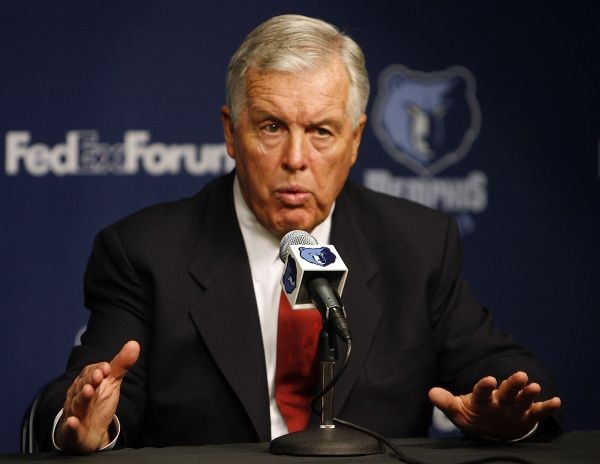The Grizzlies have raised their game. Now Memphis fans have to raise their game.
That was the gist of a four-hour meeting Saturday of team owner Michael Heisley, his top executives, and several Memphis business and community leaders. The meeting was prompted by, among other things, recent reports that Oracle CEO Larry Ellison is interested in buying the team and possibly moving it to California. The newly created advisory board or local board of directors — the title is not yet clear — met in an office at FedEx Forum. This account is based on interviews with participants Kevin Kane and Henry Turley.
Others at the meeting were Stan Meadows, Chris Wallace, and Greg Campbell representing Heisley and the Grizzlies, and Memphians Pitt Hyde (a minority owner) Bryan Jordan, Lawrence Plummer, Billy Orgel, Otis Sanford, Bob Henning, and Joe Hall, the head of a public relations firm in Nashville that worked with NBA NOW 12 years ago. Absent were Staley Cates, Willie Gregory, and Beverly Robertson.
Wallace discussed player personnel; the Grizzlies are at full strength for the first time in this abbreviated season, but are battling to make the NBA Playoffs and repeat or exceed last year’s exciting run to the second round.
Meadows talked finances. Under the new collective bargaining agreement, teams can earn $20 million a year in revenue sharing if they meet certain attendance goals. The Grizzlies have the lowest average ticket price in the league — $39.50 compared to an average of $101 — and are the only franchise to offer a $5 ticket. Attendance has improved since 2008 when the Grizzlies were 29th in the league and averaged 12,770 fans at each home game. This year, the team is averaging 15,490 in announced attendance, which ranks 21st in the league. When the Grizzlies moved to Memphis, the threshold was set at 14,900, which the team exceeded in 2004-2005, the opening year for FedEx Forum, with average attendance of 16,862. But by 2007 the Grizzlies were last in the league in attendance and in 2008 the Flyer questioned whether Memphis could not cut it in the NBA. And in this follow-up in 2010.
Heisley fielded questions and emphasized that he would like to see the team remain in Memphis indefinitely. But he said he is 75 years old and is going to sell the team eventually. He said the team loses money. His asking price is $350 million.
“There was no threat,” said Kane, who is acting as chairman of the new board. “Everybody knows Memphis is a vulnerable market.”
The Grizzlies hope to duplicate the success of San Antonio and Oklahoma City as winning teams in cities with a single major-league team. The most vulnerable teams, along with Memphis, are considered to be New Orleans, Charlotte, and Sacramento. The richest teams are the Lakers, Knicks, and Heat, which can buy the best players.
“Memphis probably needs the Grizzlies more than the Grizzlies need Memphis,” said Kane. “The Grizzlies are a strategic asset for the region, like FedEx, AutoZone, MLGW, or the airport.”
The board has three goals: Increase season-ticket sales by 3,000 next year; advise the Grizzlies as to what local activities they should be more involved with; and be ready when Heisley sells the team to present either a local ownership group or an out-of-town owner who would keep the team in Memphis.
Board members asked if the Grizzlies can coexist with the University of Memphis Tigers, who sometimes play at FedEx Forum less than 24 hours before or after a Grizzlies came. Kane paraphrased Heisley as saying that John Calipari helped bring the team here and “You will never hear me say University of Memphis is taking away from the Grizzlies.” Board members noted that most of the players don’t live in Memphis but move to the East or West Coast in the offseason. They invoked the name of Shane Battier, the popular player who was not offered a new contract last year. Heisley, Turley said, is a Battier admirer and would gladly have him running one of his companies.
Turley said his takeaway was “what can Memphis do to help the team?” Kane said his takeaway was “We need to be doing better than what we’re doing.”
The board will meet as often as six times a year, Kane said.
